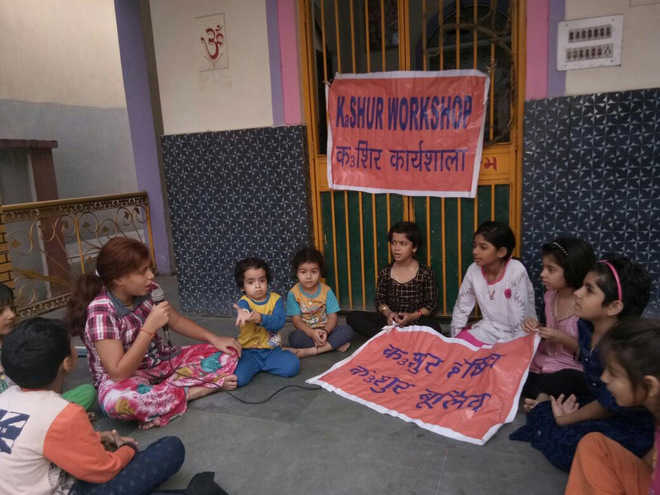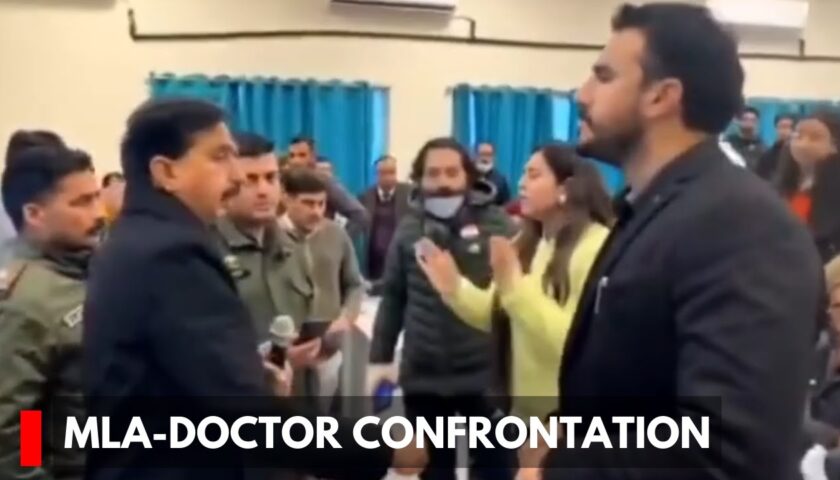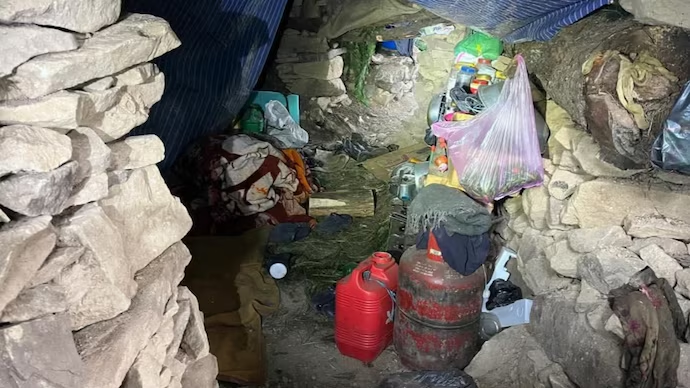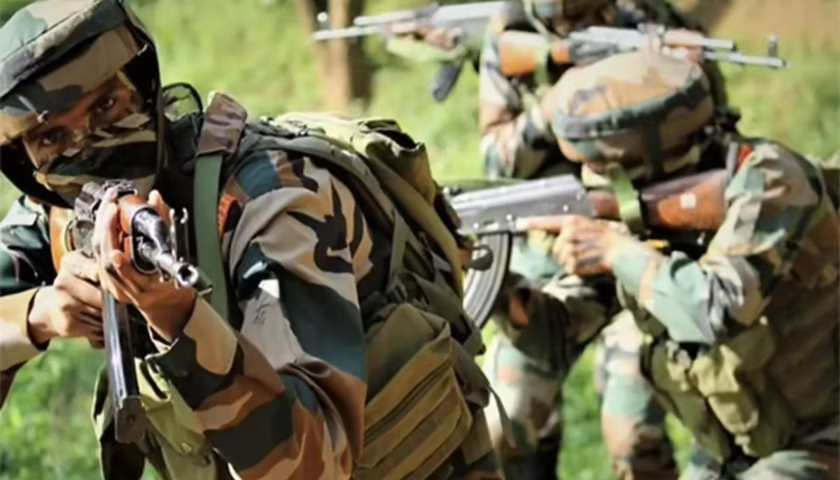1,000 children attending workshops to learn language since 2016
In exile, the mother tongue of Kashmiri Pandits is facing a threat of extinction, but efforts by some social activists are bearing fruit as Pandit children born in Jammu are coming forward to learn Kashmiri.
In the last one year, workshops teaching Kashmiri culture and traditions have seen an increased participation from Pandit children. The workshops have been focusing on children between the age group of 4 and 14.
Nearly 1,000 children have taken part in the programme since 2016 when it was launched by a group of volunteers. In the Jagti, Muthi, Nagrota and Purkhoo camps, which house displaced Pandits, community-specific cultural groups are thriving.
There is a greater realisation that traditions, which are fast vanishing, need to be preserved.
“We are surprised that parents are bringing their children to learn Kashmiri. When the programme was started, people used to tell me that it will not click with the generation which has never seen its homeland,” said Ramesh Razdan, who recently conducted a programme on Kashmiri language at Higher Secondary School, Jagti. A majority of the students studying at the school are Pandit boys and girls born after 2000.
In the last week of December, ‘Team Koshur’, a group of volunteers, will hold a competition among the learners in the age group of 3-7 years, 7-11 years and 12-14 years on spoken Kashmiri.
Since the migration of the minority community from the Valley, the use of spoken Kashmiri language in Pandit families has diminished. Parents usually talk to their children in Hindi while children, who study in local schools, pick up Dogri.
Pandit families are facing a unique problem as children speak in Hindi while parents talk to them in Kashmiri. It gets interesting and funny at times as both use a mix of the two languages.
“We want our next generation to learn their native language. We don’t discourage them from learning other languages but our aim is to ensure that the children are able to learn the language their forefathers spoke,” said RL Bhat, who heads Sanjevini Sharda Kendra, a social organisation which conducts such camps.




